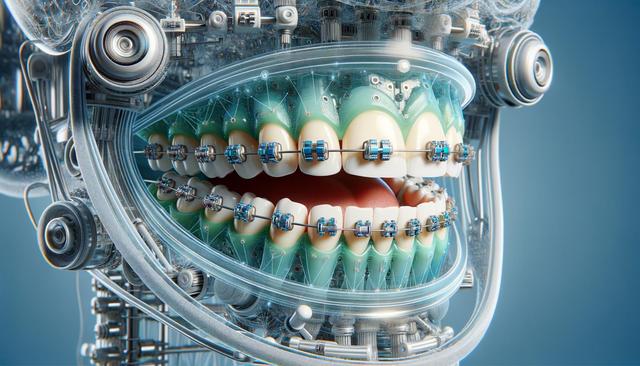Understanding the Importance of Dental Braces
Dental braces are more than just an aesthetic tool; they play a significant role in improving oral health. By correcting misaligned teeth and improper bites, braces help prevent long-term damage that can be costly and painful. Misaligned teeth are more challenging to clean, increasing the risk of plaque buildup and leading to cavities or gum disease. Braces align the teeth properly, making it easier to maintain good oral hygiene and reducing the risk of serious dental issues. Additionally, addressing bite issues can prevent excessive wear on teeth, jaw problems, and even headaches. Thus, braces serve an essential function in maintaining both the appearance and health of your mouth.
The Process of Getting Braces
Embarking on the journey to a perfect smile with braces begins with a thorough consultation with an orthodontist. During this initial phase, the orthodontist will evaluate the condition of your teeth and jaw alignment. This typically involves taking X-rays, photographs, and impressions of your teeth to devise a tailored treatment plan. The fitting of the braces is the next step, where brackets are bonded to the teeth and connected with a wire. This wire applies gentle pressure to gradually move the teeth into the desired position. Patients may experience some discomfort initially, but it usually subsides as they adjust to the braces. Regular follow-up appointments are crucial to monitor progress and make necessary adjustments.
Types of Braces Available Today
Modern orthodontics offers a variety of braces tailored to meet different preferences and needs. Traditional metal braces remain popular due to their effectiveness and cost-efficiency. For those seeking a less conspicuous option, ceramic braces are an excellent choice as they blend with the natural tooth color. Lingual braces, attached to the back of the teeth, offer a completely hidden solution. Clear aligners, a removable option, provide flexibility and are favored by many for their convenience and aesthetic appeal. Each type has its own set of advantages and potential drawbacks, and your orthodontist can help determine the best choice based on your specific dental needs and lifestyle.
Caring for Your Braces
Proper maintenance of braces is crucial to ensure the treatment’s success and to maintain oral hygiene. Brushing after every meal with a soft-bristled toothbrush helps prevent food particles from getting trapped in the brackets and wires. Flossing daily with special floss threaders designed for braces is essential to remove plaque between teeth. Avoiding sticky, hard, or chewy foods can prevent damage to the braces. Regular visits to the dentist for cleanings and check-ups are also important to monitor oral health throughout the treatment period. Taking these steps not only ensures the effectiveness of the braces but also contributes to overall dental health.
Life After Braces: Retainers and Beyond
The day the braces come off is often met with excitement and relief, but the journey to a perfect smile doesn’t end there. Retainers are typically prescribed to maintain the new position of the teeth and prevent them from shifting back. Wearing the retainer as directed by your orthodontist is crucial to preserving the results of the lengthy and often expensive orthodontic treatment. Over time, the frequency of wearing the retainer may decrease, but it remains a lifelong commitment. With proper care, individuals can enjoy the benefits of their orthodontic treatment for a lifetime, including improved self-esteem and a healthier smile.
Conclusion
Dental braces represent a significant step towards achieving not only a more attractive smile but also enhanced oral health. With various options available, individuals can choose the most suitable type of braces based on personal preference and dental needs. By committing to proper care during and after the braces treatment, people can enjoy long-lasting benefits that go beyond aesthetics. Whether through traditional braces or modern alternatives, the journey to a healthier smile is an investment in one’s overall well-being.
